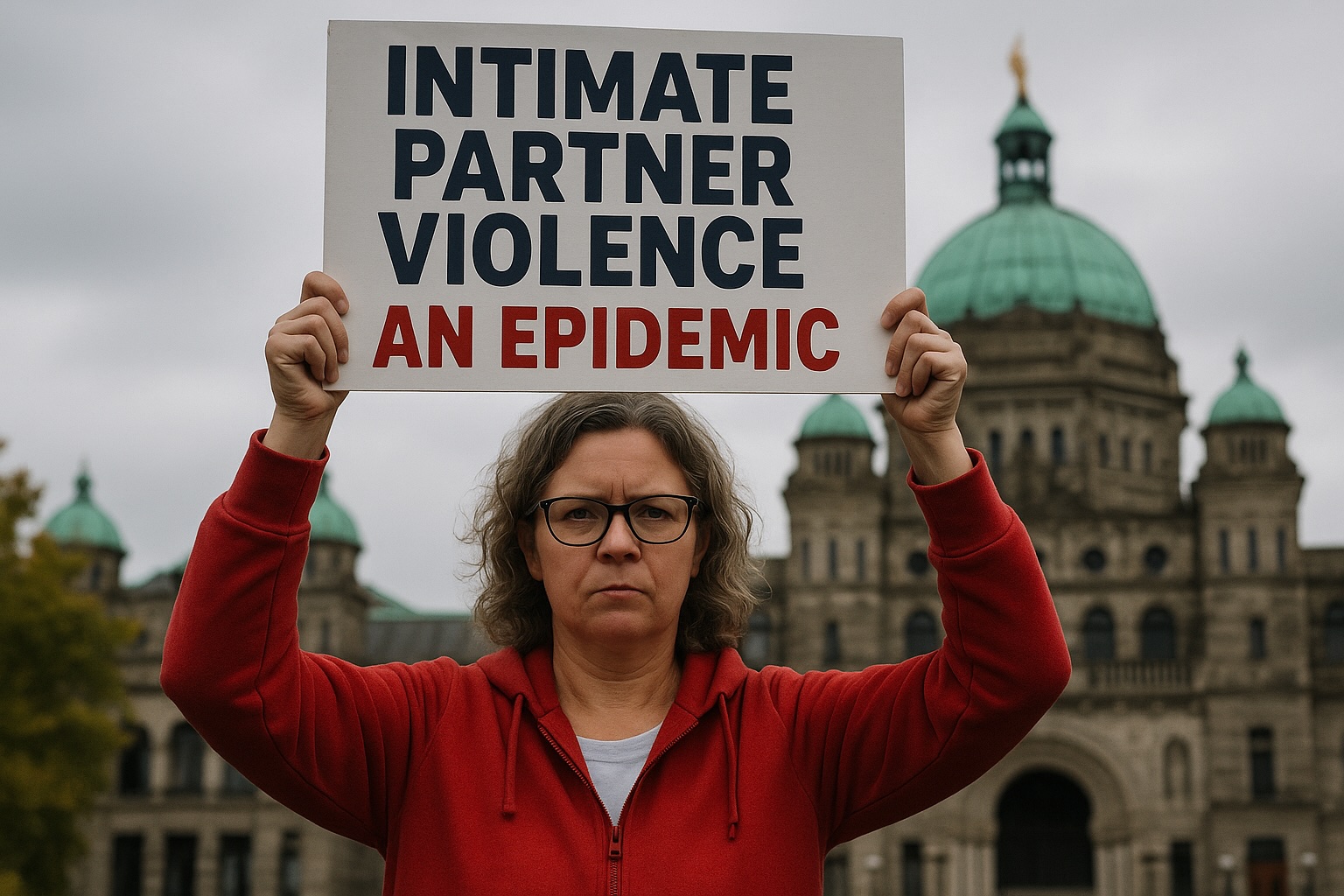📰 Unifor Joins Push to Declare Gender-Based Violence an Epidemic in BC
Unifor, BC’s largest union, joined a coalition of advocates urging the province to declare intimate partner violence an epidemic, highlighting rising femicides and systemic failures.

British Columbia is facing an escalating crisis of intimate partner violence (IPV) and gender-based violence (GBV). With femicides rising, shelters overwhelmed, and over 80% of IPV cases going unreported, survivors and advocates have been calling on the province to declare IPV an epidemic.
Now, BC’s largest union, Unifor, has stepped into the fight, joining forces with advocacy organizations, women’s groups, and frontline service providers. Their message is clear: gender-based violence is not just a private issue — it is a workplace issue, an economic issue, and a human rights issue.
Why Unifor Is Taking a Stand
Unifor represents more than 315,000 workers nationwide, spanning industries from media and manufacturing to healthcare and transportation. Many of these members are directly affected by IPV — either as survivors themselves, through colleagues, or as family members.
The union argues that IPV has direct consequences for workers and workplaces, including:
Lost wages & financial insecurity: Survivors often miss work due to injuries, court dates, or safety planning.
Reduced productivity: Trauma and ongoing abuse take a heavy toll on mental health, concentration, and performance.
Workplace safety risks: Abusers sometimes harass, stalk, or attack survivors at their place of employment, putting colleagues in danger too.
By framing IPV as a labour rights and workplace safety issue, Unifor expands the conversation beyond survivor services into the realm of economic justice and worker protections.
Union–Community Solidarity
Unifor has not only joined survivor advocates but also put forward specific workplace-focused reforms, including:
1. Paid Domestic Violence Leave
Survivors should not have to choose between safety and a paycheque.
Paid leave allows time for court appearances, medical care, relocation, or counseling.
2. Workplace Safety Protocols
Employers should adopt protocols to protect survivors from workplace harassment by abusers.
Safety planning can include security escorts, modified schedules, or remote work options.
3. Employer Training Programs
Supervisors and HR teams should be trained to recognize warning signs of IPV and provide survivor-friendly accommodations.
By leveraging its national platform, Unifor amplifies the voices of survivors and community advocates, pushing the province to act.
Why an Epidemic Declaration Matters
Declaring IPV and GBV an epidemic is more than a symbolic act — it has concrete implications:
Shifts the narrative: GBV is recognized as a systemic crisis, not a private family matter.
Mobilizes resources: Provincial governments can prioritize funding for shelters, prevention, and survivor services.
Acknowledges survivors: An epidemic declaration sends a strong message that survivors’ experiences are valid, urgent, and a societal priority.
Strengthens workplace protections: Recognizing IPV as a systemic issue legitimizes calls for domestic violence leave and workplace safety reforms.
The Bigger Picture: GBV as a Labour and Human Rights Issue
Unifor’s advocacy highlights how IPV ripples far beyond households:
Economic Costs: Lost productivity, absenteeism, and turnover due to IPV cost Canadian workplaces billions annually.
Human Rights: Survivors deserve the right to work in safety, without fear that violence will follow them to their jobs.
Community Well-Being: When survivors are supported, entire communities benefit — from healthier families to stronger local economies.
By tying IPV to both labour and human rights, Unifor is helping reframe the crisis as one that affects every sector of society.
Conclusion
Unifor’s involvement in the fight to have BC declare IPV an epidemic represents a powerful turning point. By framing gender-based violence as a workplace, economic, and human rights issue, the movement for reform expands beyond survivor advocates to include unions, employers, and entire communities.
Declaring IPV an epidemic would send a clear message: BC recognizes gender-based violence as a public health emergency that demands long-term, systemic solutions. Until then, unions, survivors, and advocates will continue to raise their voices — together.
FAQs
1. Why is Unifor calling IPV an epidemic?
Because IPV impacts workers’ safety, productivity, financial stability, and overall human rights.
2. How does IPV impact workplaces?
Through lost wages, absenteeism, trauma-related productivity loss, and workplace harassment risks when abusers stalk survivors.
3. What reforms is Unifor pushing for?
Paid domestic violence leave, workplace safety protocols, employer training, and systemic policy reform.
4. What does declaring IPV an epidemic mean?
It frames IPV as a public health emergency, requiring urgent cross-sector solutions and long-term policy changes.
5. Has BC declared IPV an epidemic?
Not yet. While 95 municipalities have declared it locally, the provincial government has so far resisted — despite mounting pressure.
